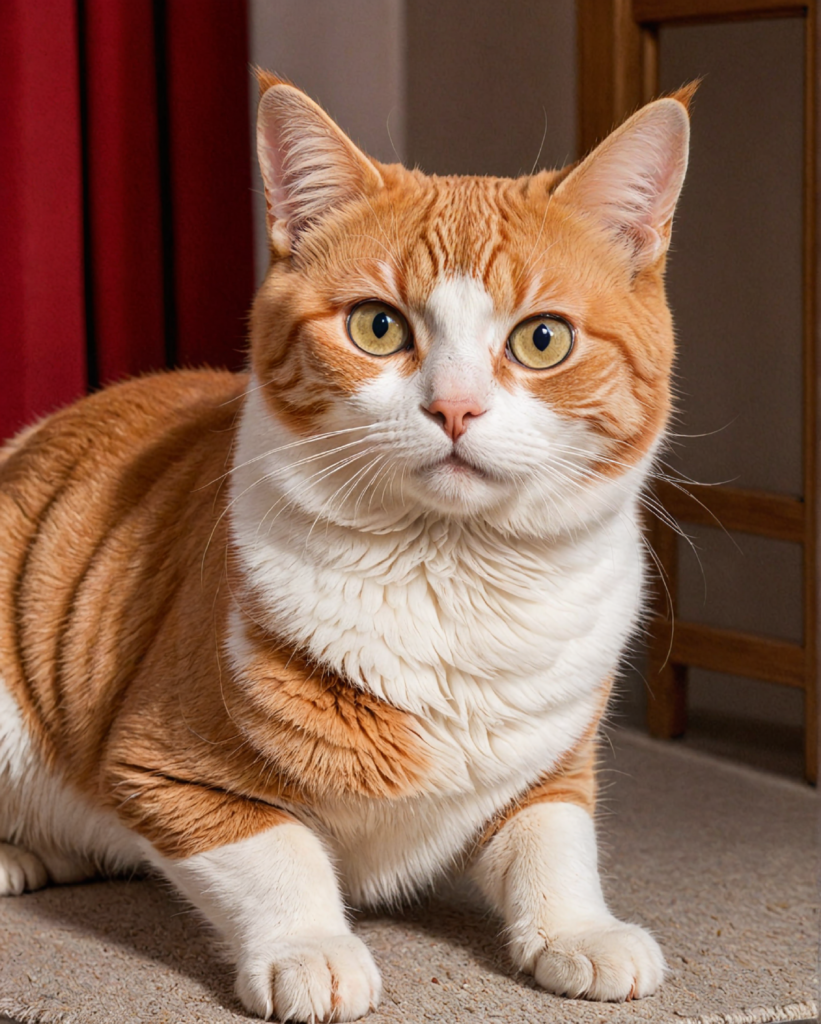
Understanding Mental Disabilities in Felines: Can Cats Have Down Syndrome?
Cats are fascinating creatures, often celebrated for their independence, agility, and unique personalities. However, just like humans and other animals, cats can experience a range of health issues, including mental disabilities. This article aims to explore the concept of mental disabilities in cats and address the common question: Can a cat have Down syndrome?
Mental Disabilities in Cats
Common Signs of Mental Disabilities in Cats
Recognizing the signs of mental disabilities in cats is the first step towards proper diagnosis and management:
- Cognitive Dysfunction Syndrome (CDS): Similar to Alzheimer’s disease in humans, CDS affects older cats and can result in confusion, disorientation, changes in sleep patterns, and decreased interaction with family members.
- Behavioral Issues: Some cats may exhibit unusual or repetitive behaviors such as excessive grooming, aggression, or extreme shyness. These behaviors can sometimes be indicative of underlying mental health issues.
- Neurological Disorders: Conditions such as epilepsy or cerebellar hypoplasia can affect a cat’s motor skills and cognitive functions.
Can Cats Have Down Syndrome?
The question of whether cats can have Down syndrome is a common one among pet owners and animal enthusiasts. To address this question accurately, it is essential to understand what Down syndrome is and how it occurs.
What is Down Syndrome?
Down syndrome is a genetic disorder caused by the presence of an extra copy of chromosome 21 in humans. This condition results in developmental delays, intellectual disabilities, and characteristic facial features. It is important to note that Down syndrome is specific to humans and cannot occur in other species due to differences in chromosome structure and number.
Chromosomal Differences Between Humans and Cats
Humans have 23 pairs of chromosomes, whereas cats have 19 pairs. The genetic makeup of each species is unique, meaning that the specific chromosomal abnormalities that cause Down syndrome in humans do not occur in cats.
Can Cats have Down Syndrome?
The answer will shock you.
Understanding Feline Down Syndrome
Although cats cannot have Down syndrome, some feline conditions may present symptoms that resemble those seen in individuals with Down syndrome. These conditions can include:
- Congenital Defects: Some cats are born with congenital defects that affect their physical appearance and cognitive functions. For example, certain facial deformities or developmental delays might mimic the features associated with Down syndrome.
- Genetic Mutations: Genetic mutations or chromosomal abnormalities unique to felines can result in physical and mental impairments. These mutations may lead to similar symptoms but are not equivalent to Down syndrome.
- Neurological Disorders: Neurological conditions such as cerebellar hypoplasia can affect a cat’s coordination and cognitive abilities, leading to behaviors that might be misinterpreted as signs of Down syndrome.
Symptoms of Down Syndrome in Cats

First and foremost, it is crucial to understand what constitutes a mental disability in cats. Mental disabilities can manifest in various ways, including behavioral issues, cognitive dysfunction, and neurological disorders. These conditions can affect a cat’s ability to learn, interact with its environment, and engage in typical feline behaviors.
While cats do not have Down syndrome, some may exhibit symptoms that resemble it:
- Unusual facial features
- Developmental delays
- Behavioral abnormalities
Diagnosing Mental Disabilities in Cats
Diagnosing mental disabilities or neurological disorders in cats requires careful observation and veterinary expertise. If you suspect your cat may have a mental disability or neurological issue, consider the following steps:
- Behavioral Observation: Monitor your cat’s behavior closely for any signs of cognitive or behavioral abnormalities. Keep a record of unusual actions or changes in routine.
- Veterinary Consultation: Schedule an appointment with your veterinarian to discuss your observations. A thorough physical examination and diagnostic tests may be necessary to identify any underlying health issues.
- Specialist Referral: In some cases, your veterinarian may refer you to a veterinary neurologist or behaviorist for further evaluation and treatment.
Managing a Cat with Down Syndrome Look-Alikes
While there is no cure for many mental disabilities or neurological disorders in cats, several management strategies can help improve their quality of life:
- Environmental Enrichment: Providing a stimulating environment with toys, puzzles, and interactive play can help keep your cat mentally engaged.
- Routine: Maintaining a consistent daily routine can help reduce stress and anxiety for cats with cognitive dysfunction or behavioral issues.
- Medication: In some cases, medication may be prescribed to manage symptoms such as anxiety or seizures.
- Therapy: Behavioral therapy or training techniques can help address specific behavioral problems and improve your cat’s overall well-being.
Common Misconceptions About Cat Down Syndrome
There are many misconceptions about cats and Down syndrome. It’s important to be informed about the actual conditions that can affect felines:
- Down syndrome is a human-specific condition and does not occur in cats.
- Cats can have other genetic or neurological disorders that may present similar symptoms.
- Proper diagnosis and understanding are crucial for appropriate care and management.
Conclusion
In conclusion, while cats cannot have Down syndrome due to fundamental differences in chromosomal structure between humans and felines, they can experience various mental disabilities and neurological disorders that impact their behavior and cognitive functions. Understanding these conditions and seeking appropriate veterinary care are essential steps in ensuring the health and happiness of our feline companions.
By providing a supportive environment and working closely with veterinary professionals, pet owners can help manage these challenges effectively, allowing their cats to lead fulfilling lives despite any mental disabilities they may face.
Informed pet owners who recognize the signs of mental disabilities early on are better equipped to provide the care their cats need, ensuring a better quality of life for these beloved animals.
Additional Resources
For more information on feline health issues and behavioral concerns, consider consulting reputable sources such as veterinary associations or specialized pet care websites. Your veterinarian can also provide valuable guidance tailored to your cat’s specific needs.
By staying informed and proactive, you can make a significant difference in the life of your feline friend, offering them the best possible care despite any challenges they may encounter.

